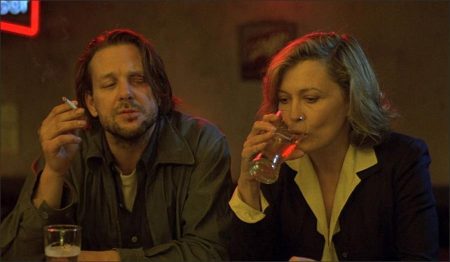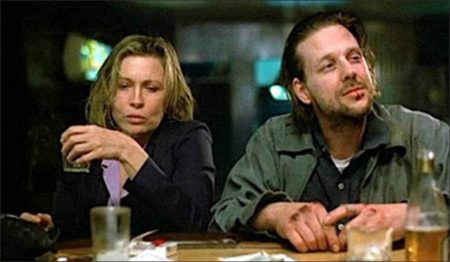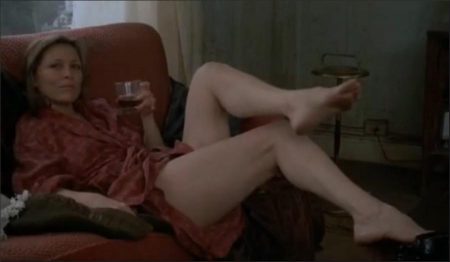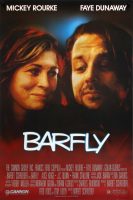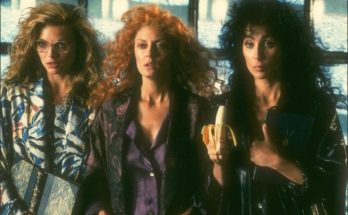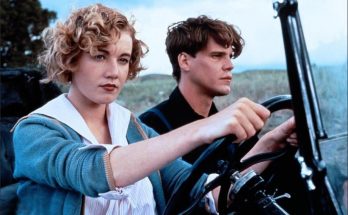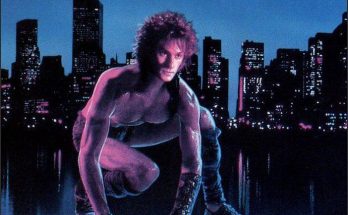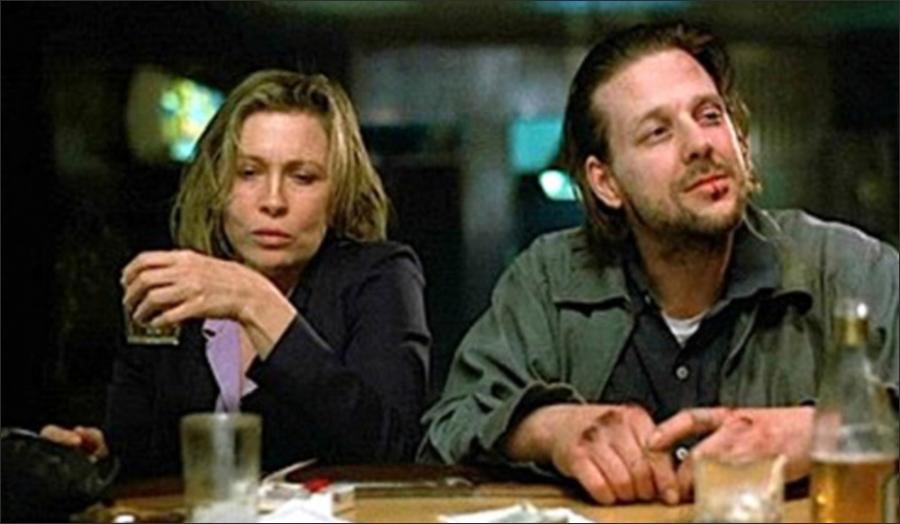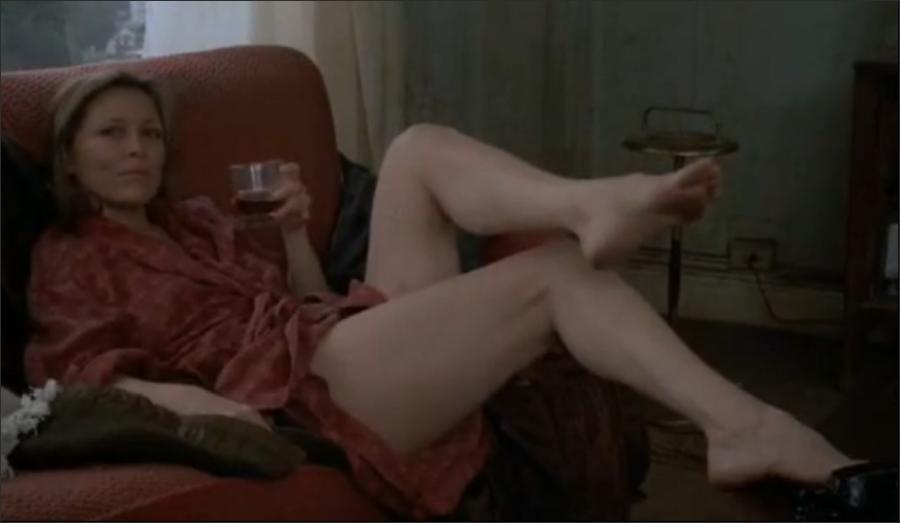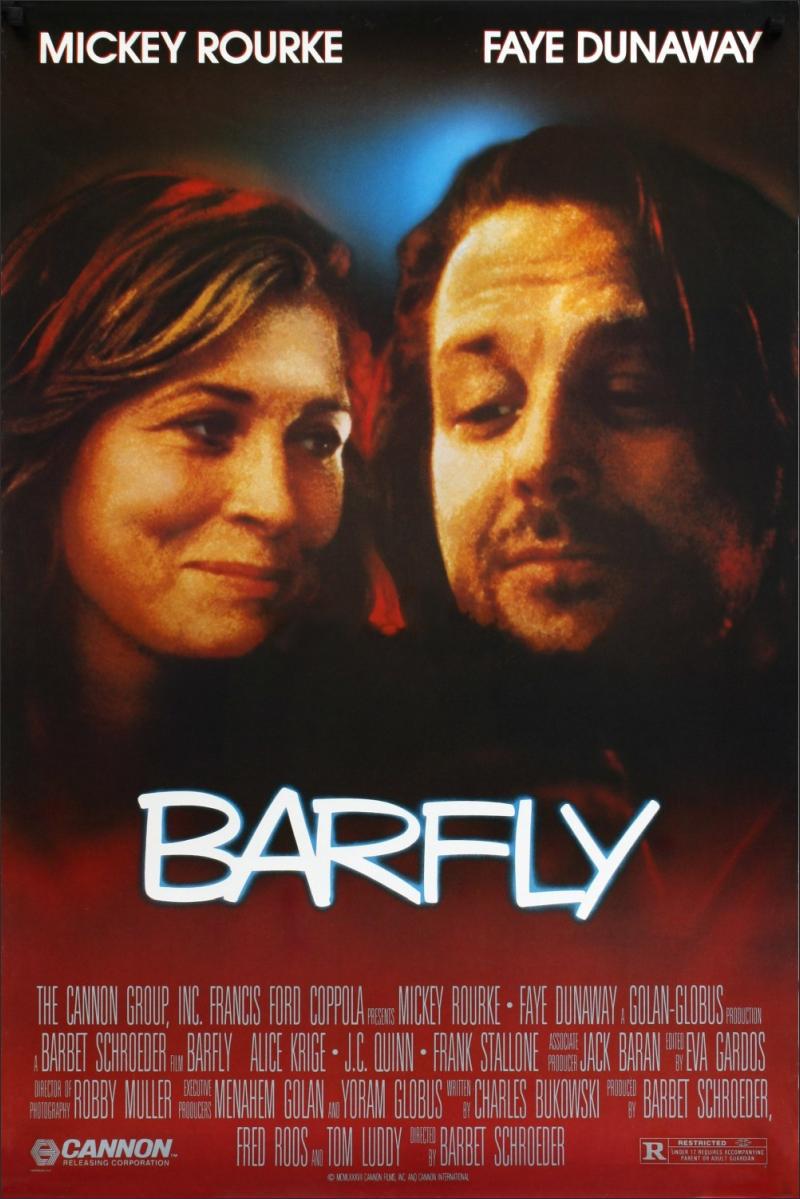Taglines: Some people never go crazy. What truly horrible lives they must lead.
Barfly movie storyline. Henry Chinaski never cared for the American dream, the thought of needing to become ‘something’ and fit into the system disgusts him. He believes that life is free and yours to live like you see fit, and if that in some cases involves copious amounts of whiskey then so be it. Henry spends his days drinking and listening to the radio, and he spends his nights drinking and fighting against Eddy who he thinks personifies shallowness and shameless self promoting.
Sometimes in the middle of this he finds the time to jot down a few lines of poetry or a short story. After fighting Eddy and winning for a change Henry is thrown out of his regular bar where Eddy is a bartender. This leads him to seek another watering hole where he happens to find Wanda who is a barfly, in her own words “if another man came along with a fifth of whiskey, I’d go with him”. Henry is not fazed by this thou and moves in with her.
Barfly is a 1987 American comedy drama film directed by Barbet Schroeder and starring Mickey Rourke and Faye Dunaway. The film is a semi-autobiography of poet/author Charles Bukowski during the time he spent drinking heavily in Los Angeles. The screenplay by Bukowski was commissioned by the French film director Schroeder, and it was published (with illustrations by the author) in 1984, when film production was still pending.
The Kino Flo light, now a ubiquitous tool in the film industry, was specially created by Robby Müller’s electrical crew for a scene in this film, which would have been difficult to light using the conventional lampheads available at the time. The film was “presented by” Francis Ford Coppola, and features a silent cameo appearance by Bukowski himself. It was entered into the 1987 Cannes Film Festival.
‘Barfly’: Tough, Tender Ballad for Losers
American movies have become so obsessed with winners and winning that the sheer, unabashed grunginess of “Barfly” (opening Friday at selected theaters) has an almost tonic effect. It’s a ballad for losers, a song from the underbelly.
This dark, wry, toughly tender movie–written by poet-novelist Charles Bukowski and directed by Barbet Schroeder–pulls us into a dry-tongued, bleary-eyed world of all-day tavern habitues, eccentrics and derelicts. Gradually this East Hollywood cul-de-sac becomes familiar, unthreatening. The locales–the cheap bars and hotels, the battered streets and sidewalks–have a stark quality that matches Bukowski’s prose, and the light doesn’t stab your eyes in the “Lethal Weapon” style of many recent L.A. movies. Cinematographer Robby Muller gives it a dirty shimmer–as if the characters were always waking up into a poisonously sunny afternoon, shot through with smog and regret.
Yet there’s nothing depressing about this tour. Like Eugene O’Neill, Bukowski finds poetry in every face of life–even the most scarred. He doesn’t apologize for these people. He just shows them: stewing in booze and sweat, dreaming of angels that turn into neon signs. The world he gives us is less the Lower Depths than the Lower Dives.
In his prose, Bukowski sometimes seems an unlikely mix of Hemingway and James Thurber: bitter, stony clarity rubbed against ironically humorous naivete. Schroeder catches this quality selflessly. His films have always focused on people on the edge–drug addicts (“More”), spiritual adventurers (“The Valley”), sadomasochists (“La Maitresse”), compulsive gamblers (“Tricheurs”)–and here he plunges into the thick of this domain of drunkards and dreamers.
At the center is Bukowski’s longtime fictional alter ego, Henry Chinaski–played by Mickey Rourke with lots of sodden sparkle and the canter of a guy clowning along a cliff edge. Rourke also comes up with a half-narcotized drawl modeled on Bukowski’s voice–though often instead he sounds like a cross between Mae West and Bob Dylan. This performance may seem like a stunt, but when the other bravura pieces appear–Frank Stallone and J. C. Quinn as the bartenders, Faye Dunaway’s wounded Wanda, Fritz Feld’s great bit as a bum angelically transformed when he’s asked for a light–you’re won over by Rourke’s canny, lazy attack.
As we watch, Rourke’s Chinaski meets the first great love of his life, Wanda (Faye Dunaway); is tempted by success when a beautiful literary editor (Alice Krige) discovers him, and then chooses between the two.
It’s an uneven combat. Dunaway’s Wanda is the intense, passionate, beating heart of “Barfly.” There’s something icily fine about Dunaway’s vulnerability; when she begins chanting “I love corn!” pulling off still-green ears in a city garden, she’s so full of crazy longing and trapped hunger that she makes your skin prickle.
Krige’s Tully seems more spurious. Forget the automatic way she beds Henry: Do any editors go to such outlandish lengths to land a writer–hiring detectives to break into apartments and photograph torn manuscripts?
Yet we can accept the Wanda-Tully battle as symbolic, and there’s a good, stinging exchange where Chinaski, in mid-seduction, bates Tully about the upper classes. She replies: “Well, it may be news to you, but they suffer too.” And he snaps back, unanswerably, “Nobody suffers like the poor.”
He’s right–and, showing the poor, Bukowski doesn’t patronize, condescend or stack his deck. He gives us all the horror of a life lived in cheap rooms, with the rent barely paid, a herd of cops and landlords outside, people screaming through the walls and no solace but a shot of booze, a snatch of Mozart on a radio, poetry written on a dirty scrap of paper, sex, longing, the pleasures of a sudden breeze or momentary solitude.
The movie is framed with two boom shots going in and out of Chinaski’s favorite hangout, the Golden Horn, a device which suggests that this world, seemingly in near-stasis, has a crazy dynamism inside its routines. Both times Henry is fighting with the night bartender, Eddie (Stallone), the only other bar denizen likely to escape this world–perhaps they keep battering each other because their ways of getting out are so different.
Eddie is a lumpen bully, looking out for No. 1, a quality perfectly caught by Stallone. Henry’s a singing clown, full of bruised compassion and truth, genuinely happy to blow his entire small fortune on several rounds of drinks for “all my friends!” The irony is that Henry, rejecting success, fleeing from it, refusing the paths of family or daily work, acts out a crazy parody of the outlaw side of that American Dream. We even know that Chinaski-Bukowski will type himself out of this into world renown.
Barfly (1987)
Directed by: Barbet Schroeder
Starring: Mickey Rourke, Faye Dunaway, Alice Krige, Jack Nance, Frank Stallone, Sandy Martin, Roberta Bassin, Gloria LeRoy, Julie ‘Sunny’ Pearson
Screenplay by: Charles Bukowski
Production Design by: Bob Ziembicki
Cinematography by: Robby Müller
Film Editing by: Éva Gárdos
Costume Design by: Milena Canonero
Set Decoration by: Lisa Dean
Music by: Jack Baran
MPAA Rating: R for language, sex and nudity.
Distributed by: Cannon Film Distributors
Release Date: October 16, 1987
Views: 512
